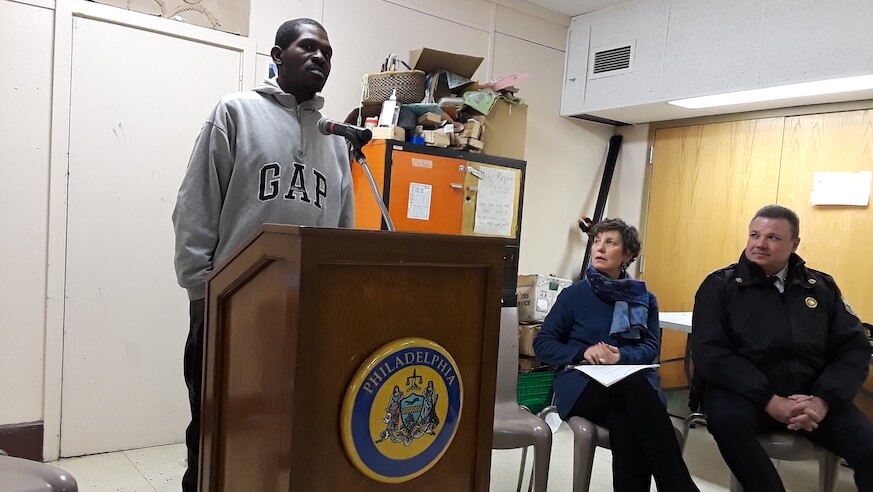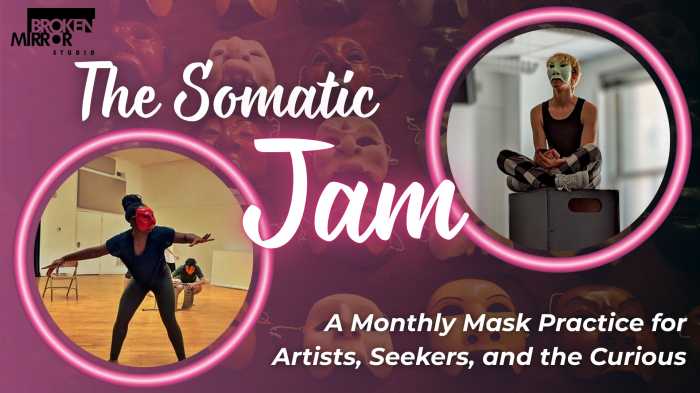City officials completed their thirty-day plan to close Kensington’s Emerald Street homeless encampment on Jan. 31. Emerald Street was the last of four homeless encampments in the community and was ravaged by opioid addiction, they said.
With assistance from local law enforcement and advocacy from organizations like the Office for Homeless Services, efforts to close the encampment focus on finding permanent homes for people that lived in the encampments and opportunities for rehabilitation.
But not everyone is interested in ready to leave the encampments – or even interested, said Donte Smith, 44, himself a former resident of the encampments who later benefited from local outreach and rehabilitation.
“It’s hard to get a job when you can’t wake up and take a shower,” Smith said. “If you’re going to wait for everybody to get it together before you give them services and opportunities, a lot of people are going to die. I know people scream at me everyday saying I’m enabling for handling out clean works and Narcan, and I’m saying if I want to do something to stop the spread of AIDS and hepatitis, then call me crazy.”
Smith, 44, as someone who used to struggle with opioid addiction, said he is proud to help others who currently struggle with homelessness and addiction.
“It’s great that city has programs, where if you put the work in you can move forward. “I’m active in outreach everyday. Whether it’s handing out works or Narcan, I had to do something to keep my focus,” Smith said. “[Public service organization] Pathways believed that I didn’t need to handle my demons before I was valuable enough to receive help. In a lot of these programs, guys need to be eight months clean and then they can get a house. That’s a bad school of thought, because a lot of times you need stability to handle your issues.”
The Emerald Street encampment was the last of four encampments cleared by the city, preceded by three others on Tulip Street, Frankford Avenue and Kensington Avenue. Over the last eight months, the city, said, 295 people accepted services from their encampment pilot program. Of those,197 got housing assistance, 180 got mental health services, 191 got drug and alcohol services, 184 got medical services and 149 people got ID cards, the city said.
When the clearing of the encampment began on Jan. 31, after 30 days of outreach, 45 people were still there – more than half of whom accepted treatment or housing, the city said.
Deputy Commissioner of Patrol Operations Paul Sullivan noted the importance of law enforcement stopping the spread of opioids as a key to helping the community.
“We’re attacking this on many fronts and we’re focusing our enforcement on the dealers, the people that are actually peddling this poison to vulnerable members of our community,” Sullivan said. “To those vulnerable members of the community, we’re going to continue to work very closely with our social service partners because the answer to this crisis is to eliminate the demand and get people off of these horrible drugs so they can move forward with their lives.”
Smith is optimistic that with more flexible standards from public service organizations, more homeless people can get the support that they need.
“I think that if you ease up some of the restrictions and requirements that they have to get the things that you need, I think you’ll see a lot more people taking advantage of that,” Smith said. “It’s not just homelessness, but it’s addiction that’s an issue… People tend to gravitate back. Everybody is not in the same place mentally. … They didn’t have running water, but when you’re in addiction, you need dope as badly as you need running water.”




























